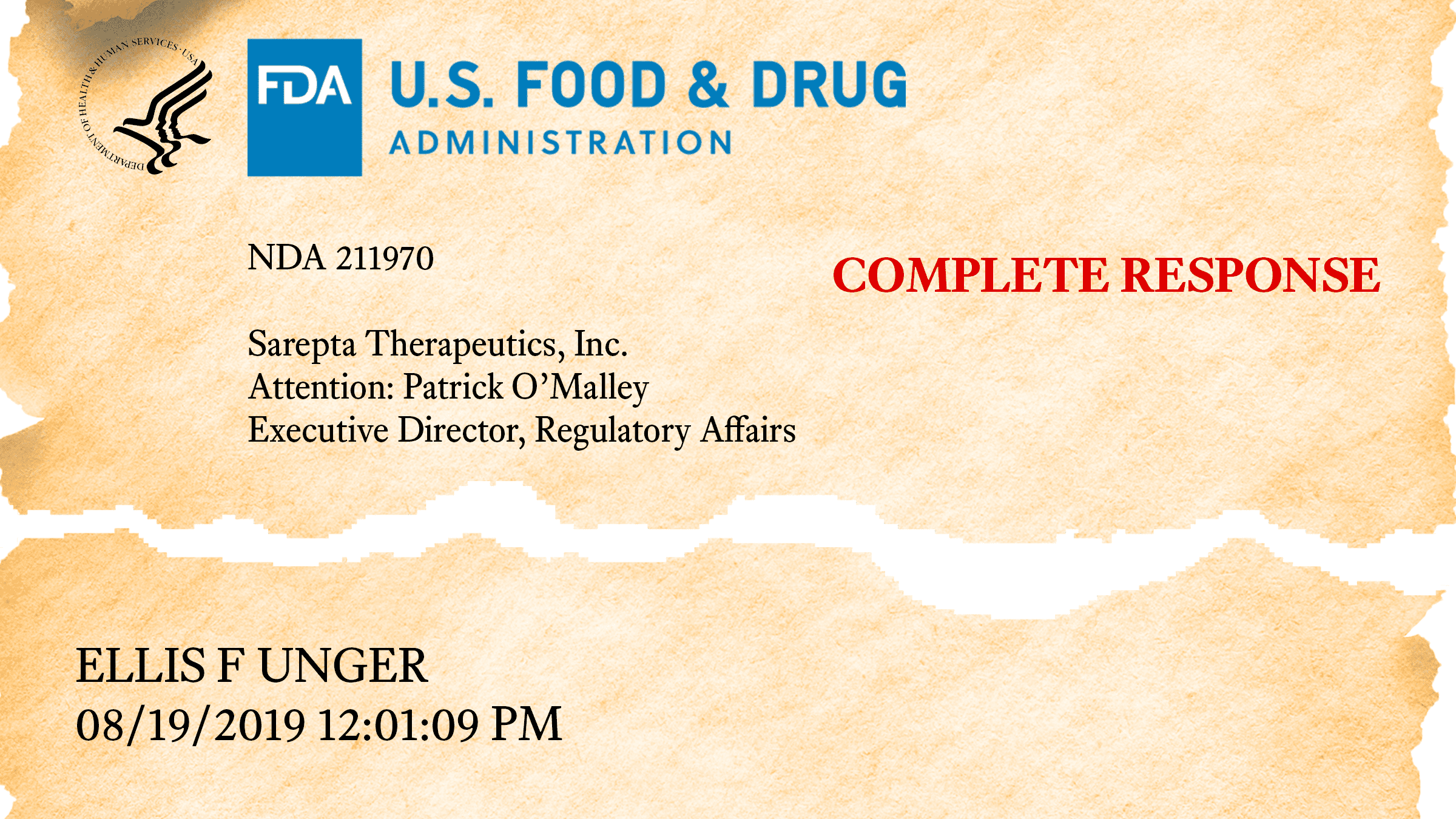
FDA’s golodirsen CRL: Sarepta’s Duchenne drugs are dangerous to patients, offering only a small benefit. And where's that confirmatory trial?
Back last summer, Sarepta CEO Doug Ingram told Duchenne MD families and investors that the FDA’s shock rejection of their second Duchenne MD drug golodirsen was due to some concerns regulators raised about the risk of infection and the possibility of kidney toxicity. But when pressed to release the letter for all to see, he declined, according to a report from BioPharmaDive, saying that kind of move “might not look like we’re being as respectful as we’d like to be.”
He went on to assure everyone that he hadn’t misrepresented the CRL.
But Ingram’s public remarks didn’t include everything in the letter, which — following the FDA’s surprise about-face and unexplained approval — has now been posted on the FDA’s website and broadly circulated on Twitter early Wednesday.
The CRL raises plenty of fresh questions about why the FDA abruptly decided to reverse itself and hand out an OK for a drug a senior regulator at the FDA believed — 5 months ago, when he wrote the letter — is dangerous to patients. It also puts the spotlight back on Sarepta $SRPT, which failed to launch a confirmatory study of eteplirsen, which was only approved after a heated internal controversy at the FDA. Ellis Unger, director of CDER’s Office of Drug Evaluation I, notes that study could have clarified quite a lot about the benefit and risks associated with their drugs — which can cost as much as a million dollars per patient per year, depending on weight.
Sign up to read this article for free.
Get free access to a limited number of articles, plus choose newsletters to get straight to your inbox.